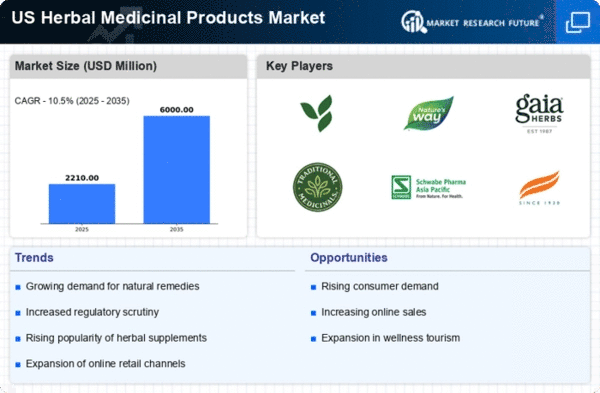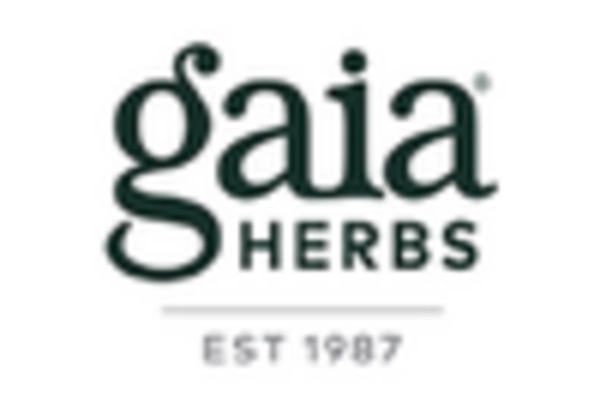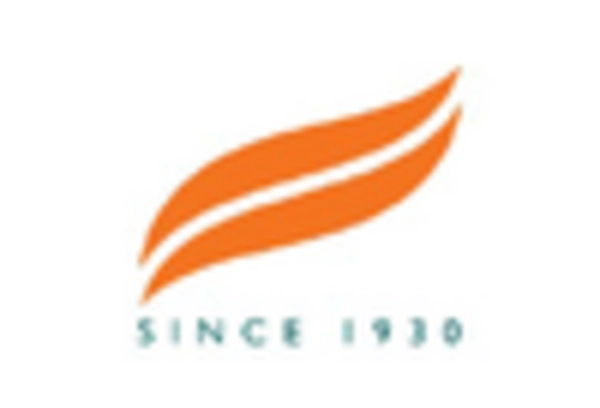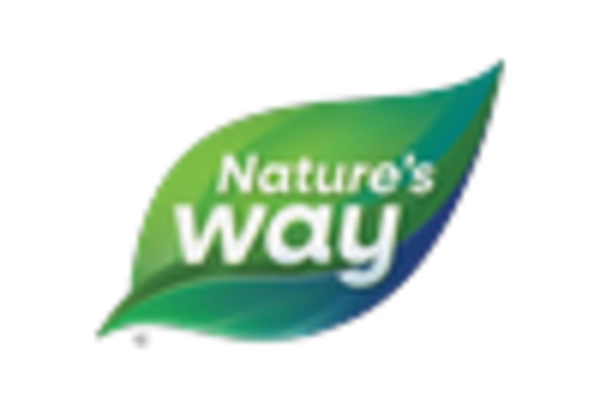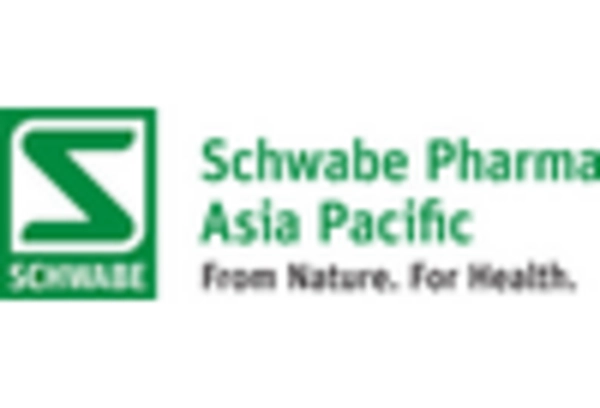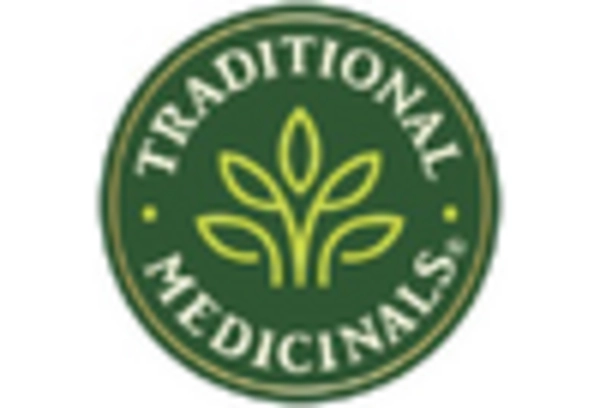Expansion of Distribution Channels
The herbal medicinal products market is undergoing a significant transformation with the expansion of distribution channels. Traditional retail outlets are increasingly complemented by health food stores, pharmacies, and online platforms, providing consumers with a diverse range of purchasing options. This diversification is crucial in meeting the growing demand for herbal products, as it enhances accessibility for consumers across various demographics. In 2025, it is projected that the number of retail outlets offering herbal medicinal products will increase by 20%, reflecting a strategic response to consumer preferences for convenience and variety. This expansion not only facilitates market growth but also encourages competition among suppliers, ultimately benefiting consumers through improved product offerings and pricing.
Shift Towards Preventive Healthcare
The herbal medicinal products market is benefiting from a broader societal shift towards preventive healthcare. As individuals increasingly prioritize wellness and disease prevention, there is a growing inclination to incorporate herbal products into daily routines. This trend is particularly evident among millennials and Generation Z, who are more inclined to explore natural remedies as part of their health regimen. The market is likely to see a significant increase in demand for herbal supplements that support immune function and overall vitality. In 2025, it is estimated that preventive healthcare will account for nearly 40% of the total healthcare expenditure in the US, further propelling the growth of the herbal medicinal products market. This shift not only reflects changing consumer preferences but also underscores the potential for herbal products to play a vital role in holistic health strategies.
Growing Awareness of Health Benefits
The herbal medicinal products market is experiencing a notable surge in consumer awareness regarding the health benefits associated with herbal remedies. This heightened awareness is largely driven by an increasing number of studies and publications that highlight the efficacy of various herbs in treating ailments. For instance, the market has seen a rise in the use of products containing turmeric and ginger, which are recognized for their anti-inflammatory properties. As consumers become more informed, they are likely to seek out herbal alternatives to conventional pharmaceuticals, thereby expanding the market. In 2025, the herbal medicinal products market is projected to reach approximately $30 billion, reflecting a compound annual growth rate (CAGR) of around 8% over the next five years. This trend indicates a robust shift towards natural health solutions, positioning the herbal medicinal products market as a key player in the overall health and wellness industry.
Rising Popularity of E-commerce Platforms
The herbal medicinal products market is witnessing a transformative shift due to the rising popularity of e-commerce platforms. With the convenience of online shopping, consumers are increasingly turning to digital channels to purchase herbal products. This trend is particularly pronounced among younger demographics, who favor the accessibility and variety offered by online retailers. In 2025, it is projected that e-commerce will account for over 25% of total sales in the herbal medicinal products market, driven by the ease of comparing products and reading reviews. Additionally, the COVID-19 pandemic has accelerated this trend, as more consumers have become accustomed to online shopping. This shift not only enhances market reach but also allows for greater consumer education through online resources, thereby fostering informed purchasing decisions.
Increased Investment in Research and Development
The herbal medicinal products market is experiencing a surge in investment directed towards research and development (R&D). This trend is indicative of a growing recognition of the potential benefits of herbal products, prompting companies to explore innovative formulations and delivery methods. Enhanced R&D efforts are likely to lead to the development of new products that meet consumer demands for efficacy and safety. In 2025, it is anticipated that R&D spending in the herbal medicinal products market will increase by approximately 15%, reflecting a commitment to scientific validation of herbal remedies. This investment not only supports product innovation but also contributes to the overall credibility of the herbal sector within the broader healthcare landscape.


